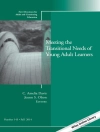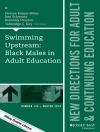This is the first volume exclusively dedicated to planning education, with a focus on India and learning from global experiences for India. Prior to the 1990s, planning education in India was largely confined to national and local economic concerns. Within a globalized scenario, such pedagogies and theories have become outmoded. With new concerns emerging in planning, new pedagogical tools and theorizations need to be developed within planning curricula to provide today’s planners with the wherewithal to adapt to changing and globalizing cities and regions in India. Therefore, the eminent contributors to this volume deal exclusively and comprehensively with planning education in a globalized context. Divided into four thematic sections, this volume provides a comprehensive view of planning education in India, with focus on:
• The trajectory of planning education in India.
• The kinds of knowledge used for teaching in Indian planning schools, and whether some sort of integration of diverse knowledges is achieved.
• The ethical foundations of urban and regional planning in Indian planning schools.
• The role of international planning perspectives in providing new insights for Indian planning education.
Comprehensive and topical, this volume is of interest to academics and researchers from planning institutes, urban and regional planners and policy makers, as well as architects, social geographers and economists.
قائمة المحتويات
Chapter 1: Introduction
Ashok Kumar.-
PART I: EMERGENCE OF URBAN AND REGIONAL PLANNING EDUCATION IN INDIA Chapter 2. Planning Education in India: A Historical Perspective
D.S. Meshram and Swati Meshram.- Chapter 3. Modern History of Urban and Regional Planning Education in India
Ashok Kumar.- Chapter 4. Planning Education for a Smart Urban India
Rolee Aranya and Chetan Vaidya.- Chapter 5. Dynamics of Land Use Planning: A Planning Education Perspective
Krishne Gowda, Mamatha P. Raj, and Sridhara, M.V.- Chapter 6: Scarcity of Planning Professionals and Need of Change in Planning Education and Practice
Milind B. Patil.-
PART II:
EPISTEMOLOGIES OF
URBAN AND REGIONAL PLANNING EDUCATION Chapter 7: An Exploration into the Multiplicity of Planning Knowledges
Ashok Kumar.- Chapter 8: Teaching-Learning for Planning with Ecologies
Shishir R. Raval.- Chapter 9: Positioning Urban Governance in Planning Pedagogy
Tathagata Chatterji and Aparna Soni.- Chapter 10: Need for Paradigm Shift in Pedagogy for Teaching the Fundamentals of Planning Education
Natraj Kranthi and Valliappan A.L.- Chapter 11: Integrating Planning Knowledges in Education to Improve Development of Indian Cities
Champa, H.S. and Gayathri Viswanathan.- Chapter 12: Integrating Planning Knowledges: A case of HUDCO and a Way ahead for Better Planning
Girish Karnad TG.- Chapter 13: Stakeholders’ Perspective of a Small River in Gujarat, India: What students can learn from Field Experiences of an Interdisciplinary Research
Bhawana Vasudeva.- Chapter 14: Towards Making Town Planning Education as an Effective Tool of Change in Urban India
Najammuddin and Ashutosh Joshi.-
PART III: ETHICS IN URBAN AND REGIONAL PLANNING EDUCATION Chapter 15: Ethics in Planning Education in India
Poonam Prakash.- Chapter 16: Ethics in Town and Country Planning Education in India – Trends and Future Prospects
Abdul Razak Mohamed.- Chapter 17: Relationship between Ethics in Planning Education and Sustainable Urban Development
Ravishankar, D., Krishne Gowda, and Sridhara, M.V.- Chapter 18: Silences in the Indian Planning Academy: Spatiality, Diversity and Participation
Ashok Kumar.- Chapter 19: Imparting Inclusivity in the Process of Planning Education: Educating the Next Generation of Professionals through Participatory Learning
Preeti Onkar Singh and Krishna Kumar Dhote.- Chapter 20: Value Education in Planning for an Effective Professional Outreach
Srikonda Ramesh.-
PART IV: INTERNATIONAL PERSPECTIVES ON PLANNING EDUCATION Chapter 21: The Place of Time in Planning Education
John Minnery.- Chapter 22: Planning Education in an International Perspective: Making the Best from Global and Local Knowledges
Raffaele Paloscia.- Chapter 23: Changing Context for Planning Education in the UK and the Prospects for Research-Led, Practice-Engaged Teaching
Geraint Ellis, Brendan Murtagh, Lisa Copeland.- Chapter 24: Learning and Teaching Quality of Life Mapping: A Geographical Perspective
Javier Martinez.- Chapter 25: Aligning Training of Town Planners with Local Realities: A Case of the Voluntary Service Overseas Programme to Strengthen Local Planning Capacity in Zambia
Hemalatha M.C. and Peter Cockhead.- Chapter 26: Project-Based Learning in the Planning Education Program for Environmental Innovators in the Time of Climate Change
Wangling Yan.- Chapter 27: Conclusions: Planning Education in India for the Future
Ashok Kumar
عن المؤلف
Ashok Kumar has been teaching undergraduate and postgraduate planning students at the School of Planning and Architecture, New Delhi since the last 23 years after finishing his doctorate from the University of Liverpool, U.K. Widely known for his expertise in spatial justice, capabilities and planning, and collaborative planning theory, Prof. Kumar has published nearly 100 papers in national and international journals, authored, edited, and co-edited 10 books, and contributed over 20 book chapters. Currently he is Editor of the ITPI Journal of the Institute of Town Planners, India. Previously he has been Editor of SPACE: The SPA Journal of Planning and Architecture published by SPA New Delhi.
Formerly Chief Planner, Town and Country Planning Organization, New Delhi for more than 12 years, Dr. D.S. Meshram has greatly influenced the planning profession in India since the last four decades. Currently Dr. Meshram is the President of the Institute of Town Planners, India. Prior to this Dr. Meshram has held the position of Chairman of the All India Board of Town and Country Planning Education of AICTE for nine years when he got prepared the model curricula both for undergraduate and postgraduate planning education. For more than two years Dr. Meshram was appointed Advisor (Urban Development) to Government of Uttarakhand.
Krishne Gowda is the Director at the University School of Design, University of Mysore, Karnataka since December 2014. Before this Prof. Gowda held the position of Director, Institute of Development Studies, University of Mysore for nearly six years. He has been working as a Professor of Urban and Regional Planning at the University for over 12 years. So far he has supervised 16 doctoral students. He has authored and co-authored more than 40 papers in journals, and also authored and co-authored 8 book chapters. He is a great organizer of academic events.












